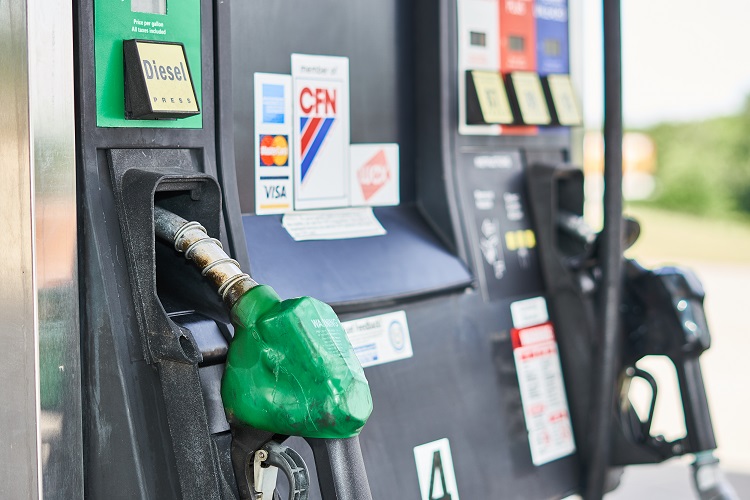More and more companies are turning to business fuel cards as their go-to solution for managing fleet fuel costs. These cards offer a secure, flexible, and efficient way to handle payments, making them an essential tool for businesses with mobile teams. But what really makes fuel cards stand out from traditional methods like cash or credit cards? In this post, we’ll compare fuel card vs. conventional payment options and explain why fuel cards are becoming the preferred choice for modern fleet management.

Traditional Fuel Payment Methods: Cash and Credit Cards
Flexibility with Some Drawbacks
Cash and credit cards have long been the standard for fueling company vehicles. They’re easy to use, widely accepted, and familiar to most drivers. Some businesses even enjoy rewards or cashback from using credit cards. However, while these methods may seem convenient, they come with several downsides that can complicate fleet management.
The Downsides of Using Cash and Credit Cards for Fleet Fuel
- High Risk of Fraud and Theft: Cash is easily lost or stolen, and once gone, it’s gone for good. Credit cards, although protected by fraud detection systems, lack the control needed to prevent unauthorized spending. This can lead to misuse by drivers or even internal theft.
- Manual and Time-Consuming Reporting: With cash, drivers must collect receipts and submit them manually, which is not only time-consuming but also prone to errors. Credit cards may provide some transaction data, but they often miss critical details like mileage, making it hard to track expenses accurately.
- Limited Real-Time Insights: Traditional payment methods don’t give businesses immediate access to fuel purchase data. This delay can mean inefficiencies go unnoticed for weeks or even months, leading to unnecessary costs.
- No Performance Monitoring Tools: Without accurate mileage tracking, businesses miss out on insights into fuel efficiency, driver behavior, and vehicle health. This can result in missed maintenance opportunities and higher long-term costs.
What Are Fuel Cards?
Designed for Fleet Management
Fuel cards are specifically built for managing fuel and maintenance costs for company vehicles. They look like regular credit or debit cards but include features tailored for fleet operations. Drivers simply swipe the card at the pump, enter a PIN, and record the odometer reading. Behind the scenes, these cards offer powerful tools that make managing fuel expenses much easier.
How Do Fuel Cards Work?
Fuel cards operate on a private network that covers over 95% of gas stations across the U.S. When a driver makes a purchase, the transaction is automatically recorded and sent to a web portal in real time. This allows businesses to monitor fuel spending, generate reports, and manage card usage from a single platform. Plus, many fuel card providers offer mobile apps for added convenience and security.
Key Benefits of Fuel Cards
Stronger Security and Control
Fuel cards come with advanced security features that protect against fraud and misuse. Businesses can set spending limits, restrict purchases to certain locations, and control when transactions can happen. This level of control ensures that fuel funds are used properly and reduces the risk of financial loss.
Automated Expense Tracking
With fuel cards, there's no need for manual receipt collection or data entry. All transactions are automatically logged, including mileage data. This automation improves accuracy, simplifies reporting, and makes tax compliance easier.
Real-Time Data Access
Fuel cards provide instant access to fuel purchase data. This real-time visibility helps businesses spot issues quickly, such as unusual spending patterns or inefficient driving habits, and take corrective action before problems escalate.
Improved Fleet Performance Insights
By capturing mileage and fuel usage data, fuel cards help businesses analyze driver performance and vehicle efficiency. This insight can lead to better maintenance planning, improved fuel economy, and lower overall operating costs.
Why Your Business Should Switch to Fuel Cards
Cost Savings
Fuel cards help reduce waste and prevent misuse, leading to significant cost savings. With better control over spending and the ability to monitor performance, businesses can save hundreds or even thousands of dollars annually.
Increased Efficiency
By automating expense tracking and providing real-time data, fuel cards streamline administrative tasks. This frees up time for more strategic work and allows for quicker decision-making regarding fleet operations.
Reduced Risk
Fuel cards offer stronger fraud protection and customizable controls, reducing the risks associated with traditional payment methods. This gives business owners peace of mind and ensures that fuel budgets are used effectively.
Scalable for All Sizes
Whether you run a small fleet or a large nationwide operation, fuel cards are a flexible solution that scales with your business. Their adaptability makes them ideal for companies of all sizes looking to improve fuel management.
Conclusion
Fuel cards offer a smarter, more secure, and more efficient way to manage fleet fuel expenses compared to traditional payment methods. With enhanced security, real-time tracking, automated reporting, and performance insights, they help businesses cut costs, improve efficiency, and stay ahead of potential issues. If you're looking to optimize your fuel spending, consider making the switch to fuel cards today.
To learn more about how corporate fuel cards can benefit your business, visit Ricochet Fuel Distributors.
Drive In Racking,Drive In Pallet,Drive On Rack,Drive In Warehouse Racking
Nanjing Chinylion Metal Products Co., Ltd , https://www.clrack.com